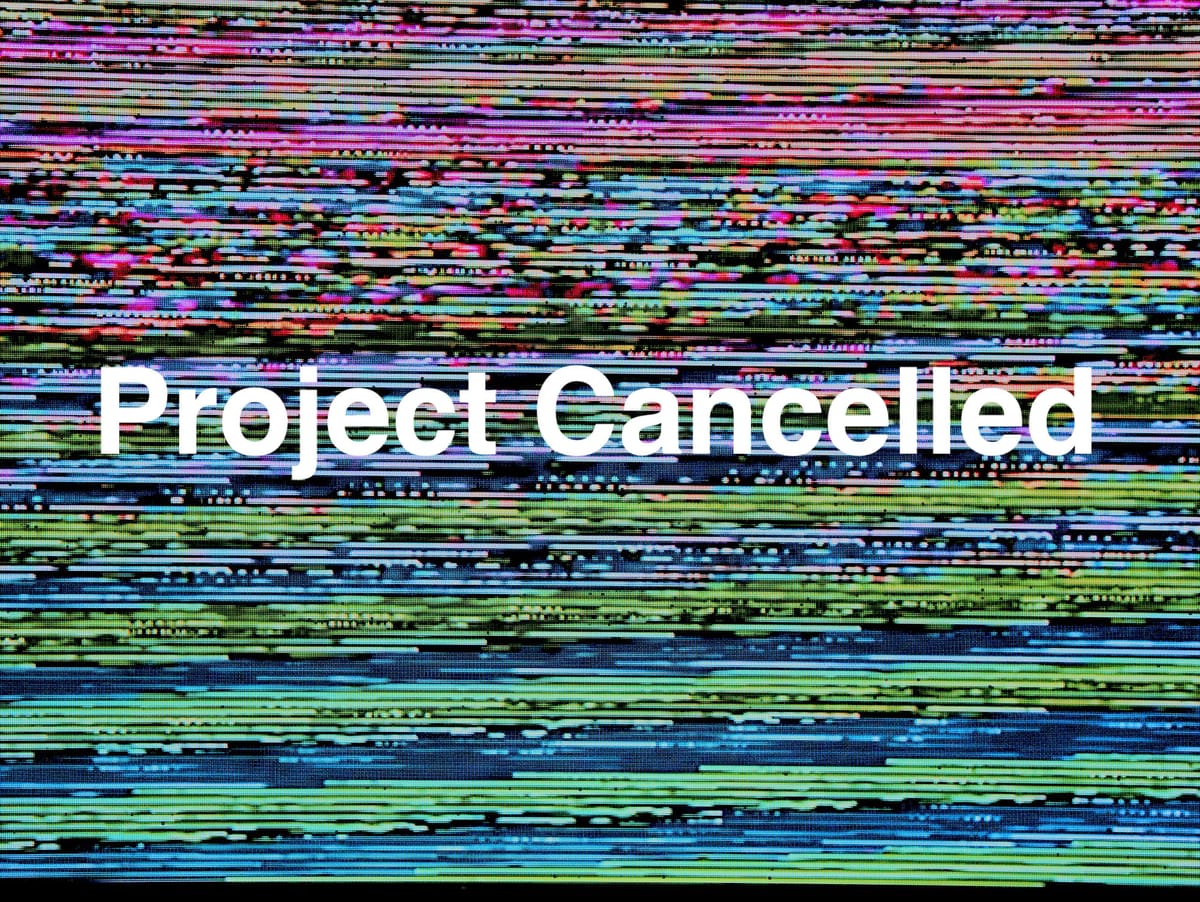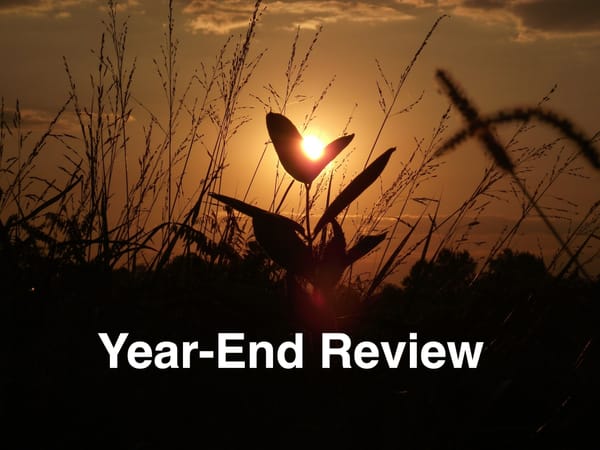How to Handle Project Cancellations in a Clinical Research Consulting Business
An overview on how to approach project cancellations when clinical research consulting.

What would you do if you had a project cancelled before completion?
Would you attempt to collect the remaining balance of the contract? Or would you simply settle up for a portion that covers your cost?
I had this situation occur a couple of times and I want to talk through both sides and both scenarios.
Let's dig in.
Scenario #1 1️⃣
This particular project I was working on was funded by a grant. This grant was paid out in milestones upon reaching certain objectives.
The client missed reaching these objectives and the grant was subsequently cancelled.
I was a consultant on this project, and ultimately paid by the grant. I was charging a project fee, with prepayments before completing each key milestone. About 40% of the project fee was paid out, with 60% remaining for work not yet started or completed.
What would you do in this situation? Would you try to collect the remaining contract balance or accept the situation and move on?
Trying to Collect 💰
There are a few arguments in favour of collection.
- Contract — We have a contract and I have fulfilled all my obligations. Technically I am owed the remaining balance.
- Fault — Not my fault that the grant fell through, why should I be penalized?
- Work — By signing this contract I would have had to forgo other work. There are only so many hours in a year. Lead time to fill the void left by this project is months long. I am losing time and money.
Acceptance 🚫
On the other hand, there are also reasons just to accept the situation and move on.
- Goodwill — Both sides are affected by the grant being cancelled. There is no need to make things worse on the client side. This could likely lead to no repeat business and at worse damage my reputation.
- Payment — I was collecting prepayments so technically any work that has been done is already paid for.
- Stress — The amount of money I could potentially get (minus any legal fees) is generally not worth the stress that would come from the situation. I would rather focus my mental energy on positives, such as solving problems for existing clients.
Moving Forward ⏩
What I decided to do was to end the project, accepting the money that has already been paid and nothing more.
I really think the reasons to accept far outweighed the reasons to collect. I was already paid for the work done and I didn't want to have to think about the situation any more. It was not worth the money that could potentially be paid out (after legal fees).
What would you have done in this situation? Get in touch and let me know.
Scenario #2 2️⃣
This project was also funded by a grant. The grant was also paid out in milestones upon reaching specified objectives.
This client also missed reaching the project objectives and the grant was cancelled.
I was consulting on the project, and was paid by grant funds. I was billing by a project fee, with prepayments before completing key milestones. About 70% of the project fee was paid out, with 30% remaining for work not yet started or completed.
What is different about this situation was the first is that I was prepaid for a milestone that would never be completed because the project was cancelled. The client was asking for the prepayment to be refunded.
What would you do in this situation? Would you refund the prepayment or keep it?
No Refund 🚫
There are a few reasons to keep the prepayment.
- Contract — We have a contract and I have fulfilled all my obligations. Technically I am owed the prepayment and the total remaining balance.
- Fault — Why should I be penalized if the grant fell through by no fault of mine?
- Work — By taking on this project I said no to other work. By accepting the prepayment I set aside time in my schedule to complete the milestone. Time which now will be vacant and I should be compensated for that.
Refund 💵
On the other hand, there are also reasons just to refund the prepayment and move on to other projects.
- Goodwill — This was a long-term client with future potential projects. Both sides are affected by the grant being cancelled. There is no need to make the situation worse by refusing a refund.
- Prepayment — The refund amount was for a prepayment on work that will never be completed. Doesn't feel right to keep it.
- Stress — Keeping the refund amount is really not worth the stress of the situation. My time is better spent having a positive impact and solving problems for clients.
Moving Forward ⏩
What I decided to do is to was to refund the prepayment, and also to forgo the rest of the contract amount.
Here I think the reasons to refund outweighed the reasons not to. Money was paid for work that will not be completed. The money kept is not worth the stress or any damage done to my reputation.
What would you do in this situation? Get in touch and let me know.
Lessons Learned 🏫
From difficult situations, there are always lessons to be learned. Here is what I take away from the two scenarios:
- Contract — Always have a contract in place. It protects both sides and gives you options to solve problems that arise while running your clinical research consulting business.
- Project Fee — The situations would be a lot different if i had been charging by the hour. With hourly work, invoices would be submitted weekly or monthly. Once the grant funding was cancelled, I think it would be harder to collect on outstanding balances. With a project fee, money is already collected up front before work begins.
- Prepayment — Collecting money before starting work is key. There is less risk of not getting paid for work that you complete.
- Relationships — A consulting business lives and dies by referrals and repeat business. Being "right" and keeping a small portion of a project fee is not worth the potential damage done to a reputation.
Summary
This article has summarized a couple scenarios were difficult decisions had to be made. These will arise all the time with a clinical research consulting business, but by thinking through them we can make the best decisions for the business.
If you found this article useful please let me know! Reach out and tell me of any difficult situations that you have been in, I'd love to hear about them. Get in touch.




